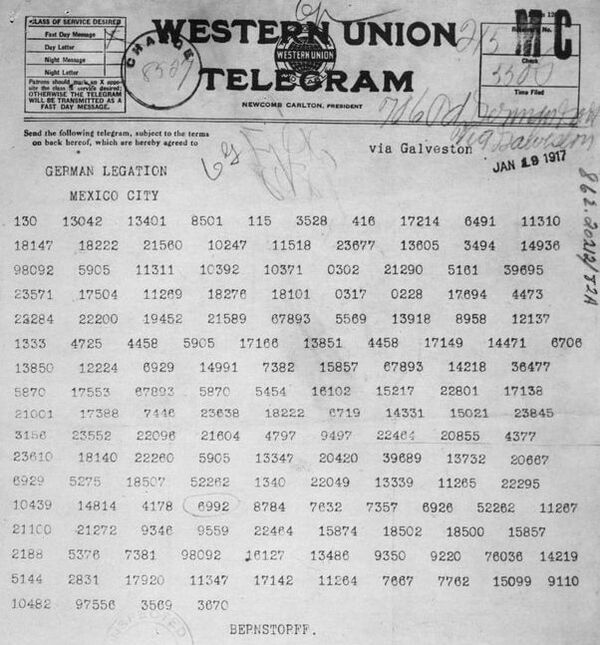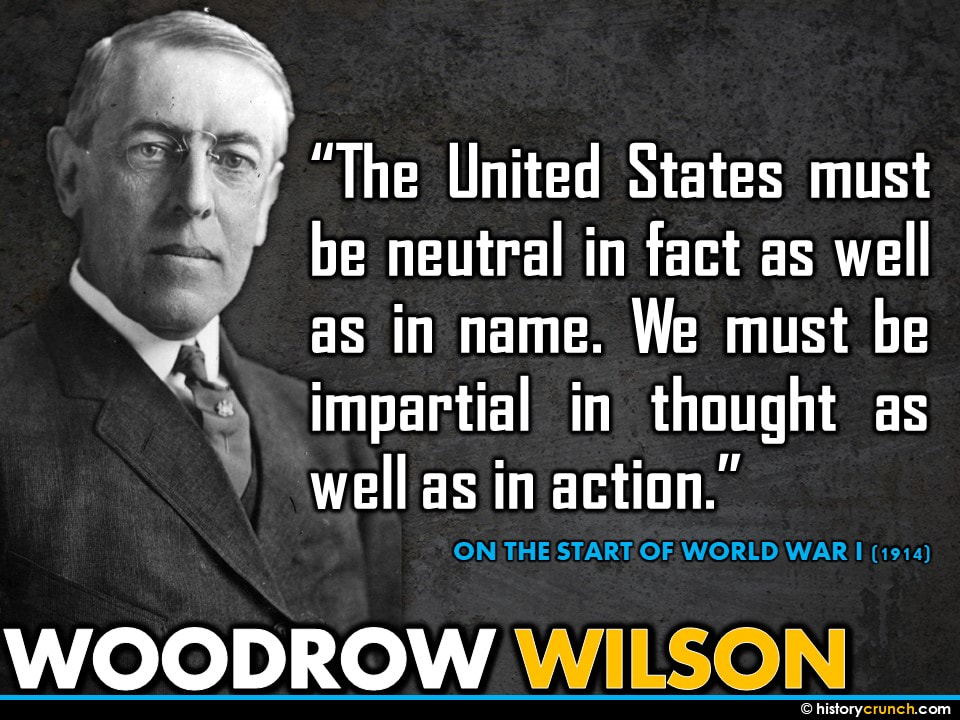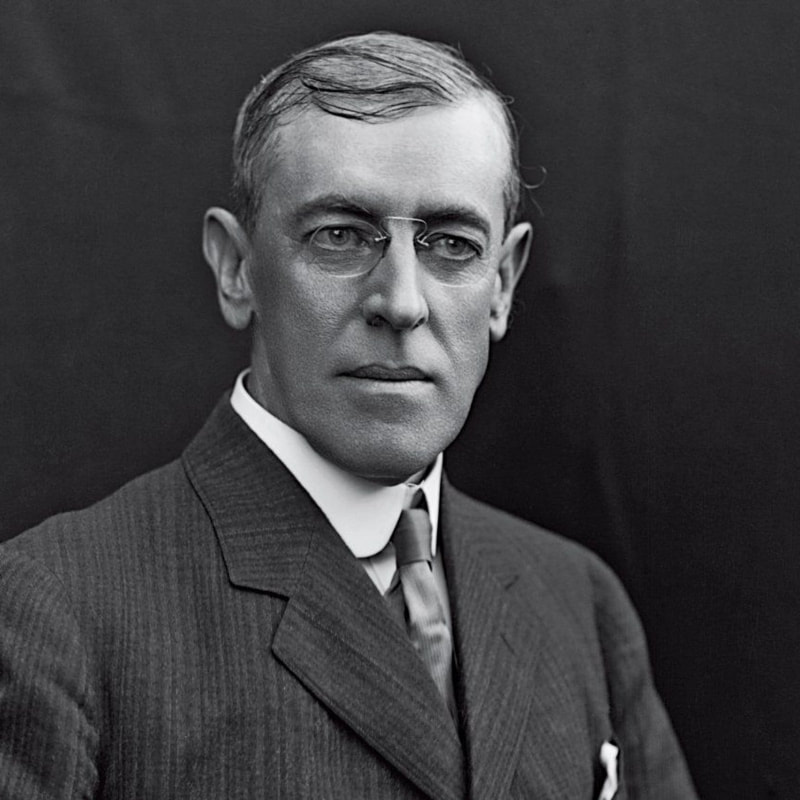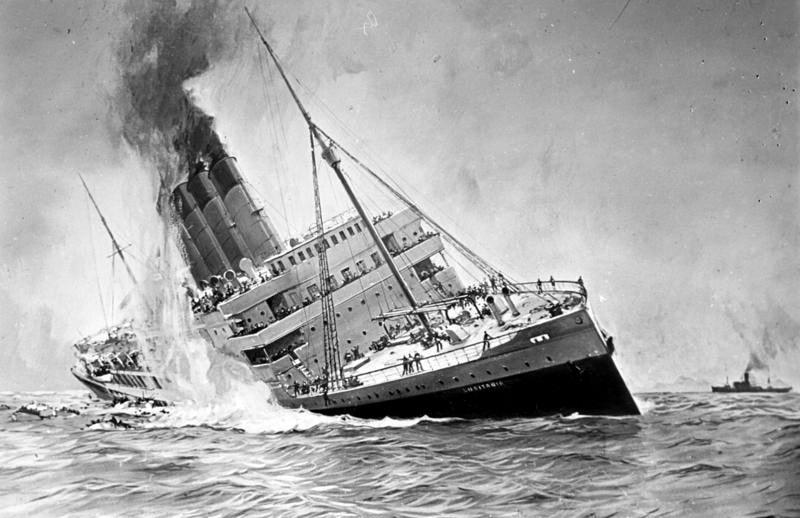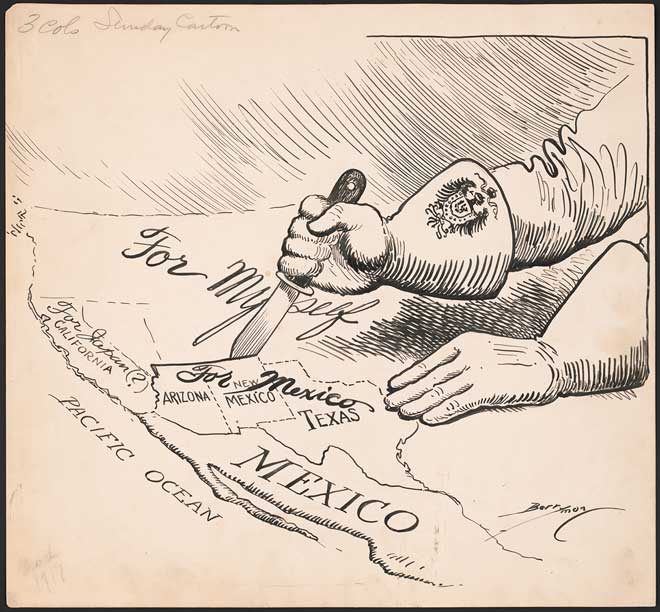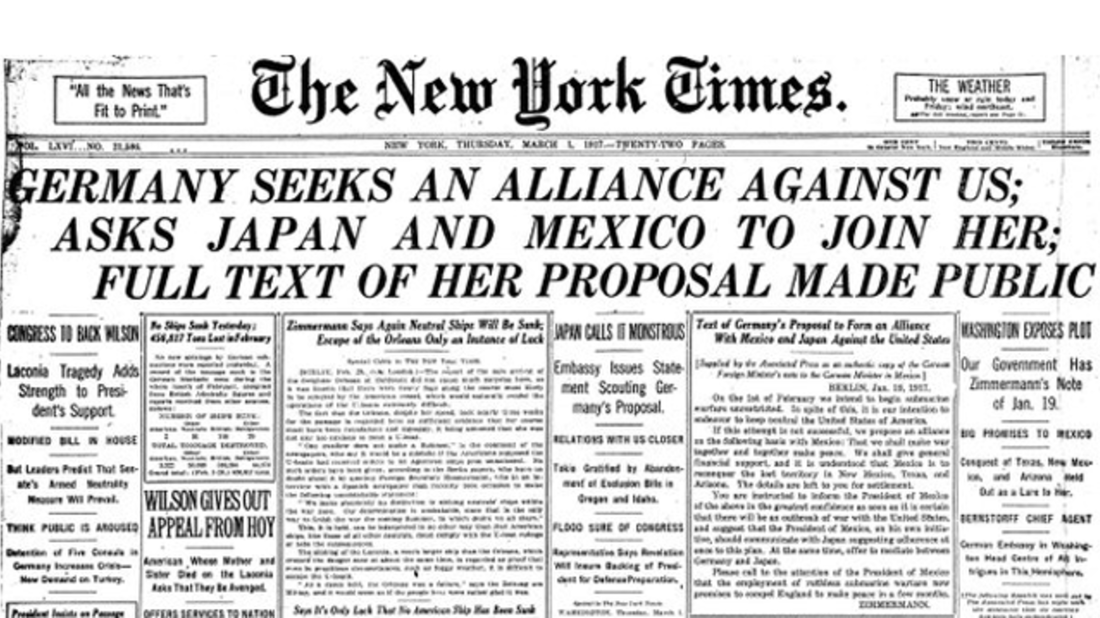ZIMMERMAN TELEGRAM & THE UNITED STATES'
ENTRY INTO WORLD WAR I
The Zimmerman Telegram was a significant event in the history of the United States, especially in relation to World War I. In short, the Zimmerman Telegram was a communication from Germany to Mexico in January of 1917 that proposed a military alliance between Germany and Mexico. Essentially, Germany was contacting Mexico in hopes that it would attack the United States. This was an important event, because alongside German submarine warfare in the Atlantic Ocean, it was a major reason for the United States’ eventual entry into the fighting of World War I.
WORLD WAR I & THE UNITED STATES
World War I was a major historical event in the first part of the 20th century. It was a notorious conflict because of the system of alliances that turned a relatively small crisis into a devastating war. For instance, the war began in 1914 following the assassination of Austrian Archduke Franz Ferdinand, which resulted in the July Crisis. Then a series of long-term causes combined that led to the outbreak of World War I. With that said, for the early portion of the war, the United States remained largely uninvolved in the mostly European conflict. For instance, from 1914 until 1917 the United States did not participate in any active fighting of World War I. Instead, the major battles of the war were waged by the European powers and their colonies in both the Western Front and Eastern Front. It should be noted that while the United States did not participate in any active fighting during the early years of World War I, they did actively trade with the Allied Powers. Click here to read more about the history of the United States in World War I.
When World War I began in 1914, Woodrow Wilson was the President of the United States. The neutrality of the United States in World War I was a major factor of Wilson’s first term as president. In fact, when he ran for re-election in 1916, he campaigned on the idea that he kept the country out of the fighting of World War I. In the election, Wilson easily defeated the Republican candidate Charles Evan Hughes with 49 percent of the popular vote.
American neutrality in World War I was eventually tested at the start of Wilson’s second term as president. For instance, in response to the British naval blockade of Germany, the German Empire began carrying out submarine warfare against ships in the north Atlantic Ocean. For the Germans this was important as they hoped to stop supplies from reaching Britain. Unfortunately, German submarines were responsible for the sinking of several ships which had American citizens on them. The most famous example of this was the sinking of the British ocean liner RMS Lusitania in May of 1915. In total, the German attack on the Lusitania killed 1,198 people including 128 American citizens. Obviously, this created anger in the United States and forced Wilson to deal with the growing crisis. In 1917, the German Empire again began carrying out unrestricted submarine warfare and was one of the main reasons that the United States eventually joined the war effort on the side of the Allied Powers. In fact, in February of 1917, it was discovered that Germany had been in contact with Mexico in hopes of igniting a conflict between Mexico and the United States. This was known as the Zimmerman Telegram, and when combined with Germany’s submarine warfare, it pushed Wilson to eventually declare war against Germany. As such, historians consider the Zimmerman Telegram a significant cause of the United States’ entry into World War I.
ZIMMERMAN TELEGRAM
As stated above, the Zimmerman Telegram was a significant event as it was an important factor in the United States’ eventual entry into World War I. This now famous letter was written by German foreign secretary Arthur Zimmermann and was intended for the German ambassador to Mexico. It was transmitted in a coded form to Mexico in January of 1917, during the First World War. The reason it became famous is because the telegram was intercepted by the British and their code breakers were able to decrypt the message and understand its contents. Initially, the British withheld this information from the United States in order to keep it a secret that they could accurately read the German encryption. Eventually, the British made the decision that it was worth it to inform the Americans as they believed the contents of the message would lead to the United States to enter the war and provide the British with needed aid. In fact, at the time of the Zimmerman Telegram, the Allied Nations of Europe were struggling with the stalemate conditions of the trenches on the Western Front. As such, the entry of the United States into the fighting of the war would be a huge form of help to the Allied cause.
The contents of the Zimmerman Telegram are important because the German administration was trying to make a deal with Mexico in the event that the United States were to enter World War I. Essentially the German leadership suggested an offer that if the United States entered, the Germans would both financially and militarily support the Mexicans if they mounted an attack on America in order to force them into a two front war and dissuade them from concentrating on the Germans. In return, Mexico would be free to annex the territory that was ‘lost’, from earlier conflicts. These territories included: Texas, New Mexico, and Arizona. Another major benefit for Mexico entering the war was that it could be used to convince the Japanese to join the German cause and have another American opponent in the Pacific.
UNITED STATES' ENTRY INTO WORLD WAR I
Obviously, the discovery of the Zimmerman Telegram caused hostility between the United States and the Germans, which was a relationship that was already tense. Earlier in World War I, Germany had continued with their unrestricted submarine warfare, which they had started to attack Allied (British and American) ships in the Atlantic Ocean. Even though President Woodrow Wilson had recently won re-election with the slogan of ‘He kept us out of the war’, the combination of these two events made it clear that there was no choice but for the United States to enter the war. On April 2nd, 1917 President Wilson went before Congress to request a declaration of war against Germany. According to the President, the actions by the Germans gave them no choice. Two days later, the United States Senate voted in support of the President's request and the house agreed two days after that. The United States was at war and joined the Allied Powers against the Central Powers.
CITE THIS ARTICLEAUTHOR
|
|

